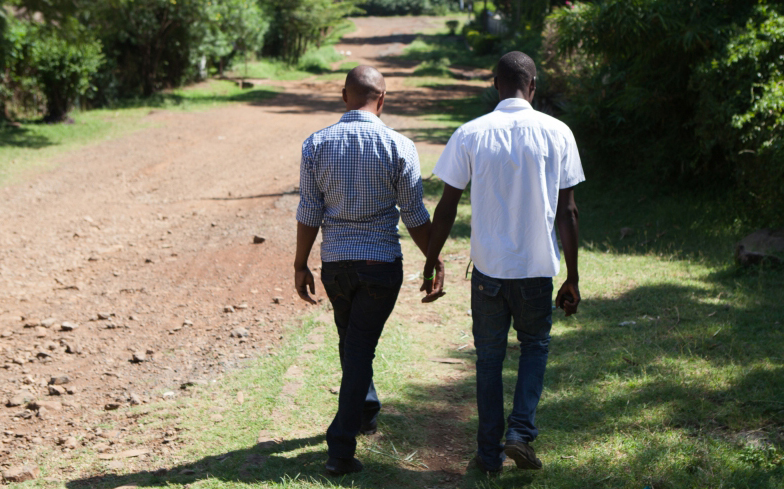
ReportOUT have partnered with seven Ugandan organisations to document LGBTQ+ lives for a year-long joint survey.
OUT in Uganda’s research has examined the experiences of minority SOGIESC Ugandans (sexual orientation, gender identity, expression and sex characteristics). There is an estimated population of 39 million people in Uganda with approximately 390,000 SOGIESC people, according to a report published by Sexual Minorities Uganda in 2018.
The study was made possible through a partnership with ReportOUT, the University of Sunderland and seven Ugandan partner organisations, which uncovered disturbing findings around the role of the Ugandan state and the mental health of SOGIESC Ugandans.
Research showed SOGIESC Ugandan’s often face arbitrary arrest and police brutality. Due to this, more than half of SOGIESC Ugandans who are victims of crime do not report an incident out of concern for their own safety, or fears of experiencing homophobia from the police.
Prejudice is not an uncommon experience for SOGIESC Ugandans which peaked following the passing of the AntiHomosexuality Act (AHA) in 2014. These cultural attitudes have directly impacted education and employment prospects, as well as access to housing of SOGIESC individuals. These reports of mistreatment are not just findings, but translate into shocking statistics.
ReportOUT found that 38% of respondents report that they have been attacked or threatened with sexual violence twice in the last 12 months, often with more than one perpetrator.
Similarly, over half (60%) of SOGIESC Ugandans have been tortured by another person(s). Due to the trauma many SOGIESC Ugandans have endured, over 40% of SOGIESC Ugandans live with depression and many show symptoms of PTSD. The mental health of this community is suffering due to unfair treatment with over a quarter of SOGIESC Ugandans reporting that their physical health is ‘getting worse’.
Lord Michael Cashman CBE, previously the Labour’s Party’s envoy on LGBTQ+ issues worldwide, commented on the growing issue of LGBTQ+ discrimination in Uganda.
“This urgent and important report is evidence that discrimination and inequality against SOGIESC destroys people’s lives, their prospects, their mental health and enables them to be used by state institutions in an inhumane way,” he said
“It is vital that we work with all partners to bring about real and lasting change for SOGIESC people ensuring that everyone is treated equally and that their human rights are respected regardless of difference.”
The Amnesty International Rainbow Committee have also issued a statement on the newly issued data. “ReportOUT’s thorough and comprehensive new report outlines the persisting and rising trends of homo/transphobia in Uganda,” the committee said.
“With 61% of respondents being the victims of torture — one of the report’s alarming findings — the need for the government to offer greater protection of LGBTI people could not be more urgent. This report highlights the lived experience of LGBTI Ugandans and the pressing need for the government to ensure their safety, health, financial security, and access to housing.”
If you want to learn more about this pressing issue, ReportOUT are hosting a free Zoom panel event on 25 November which will include a discussion about the research data and comments from invited guests.
These will include Musa Aziz, an activist and defender for the LGBTQI+ community in Uganda who founded an organisation called Kuchu Shiners Uganda; a representative of Kampus Liberty Uganda who is an activist, and a human rights defender reaching out to marginalised groups; and Ram Gava who is the founder and the Executive Director of Wave of Legacy Alliance Initiative Uganda.
You can click here to register for the virtual event, and you can read ReportOUT’s full research here.



